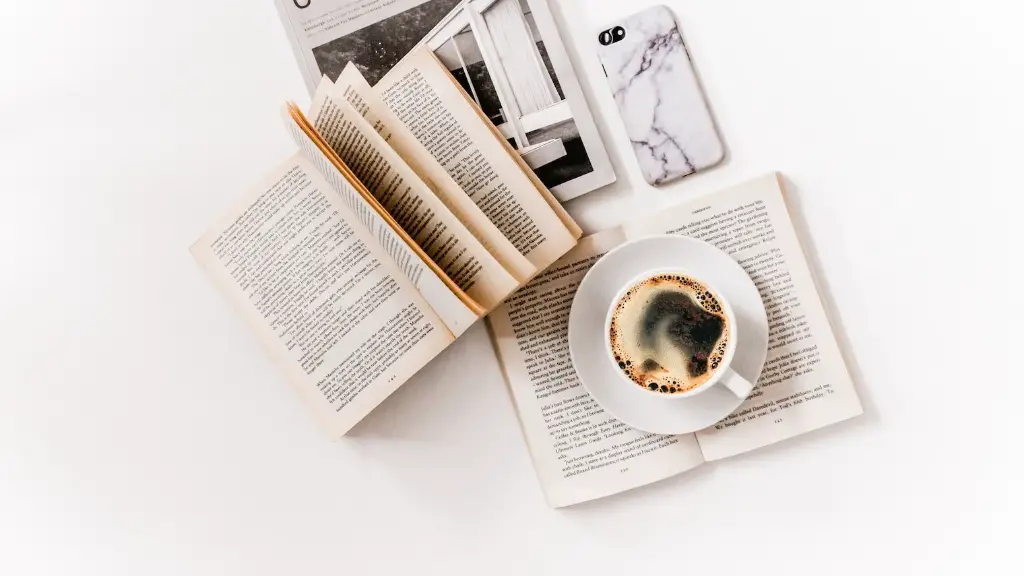As one of the world’s most popular beverages, coffee has a host of benefits that many people enjoy attempting to reap, however a new question has formed in recent years: will drinking coffee raise your blood pressure? This is an important issue to consider, as high blood pressure can be a sign of heart disease, stroke, and other long-term health issues.
The short answer is yes, drinking coffee can raise blood pressure levels, although studies have revealed that the extent to which it does so is not clear cut. It is strongly correlated with increasing blood pressure levels in some people, with the most significant increases in effect observed in those with pre-existing hypertension or those with lower caffeine tolerances.
To understand the relationship between coffee drinking and blood pressure, it’s important to look at the evidence behind the claims. In one study, US researchers found that drinking five or more cups of coffee a day was associated with a 24 per cent increased risk of high blood pressure compared with drinking no coffee. Similarly, another study found that those who drank six or more cups of coffee a day had a 23 per cent greater chance of developing high blood pressure.
However, while these studies do tie coffee consumption and blood pressure, it’s important to state that further research is needed before any concrete conclusions can be drawn. For example, a recent large-scale study among more than 500,000 participants found that coffee drinking had no notable effect on blood pressure over a period of around 16 years.
Experts suggest that the way coffee is consumed can be a determining factor in any observed increases in blood pressure. Factors such as amount, variety, strength, method of ingestion, and whether other substances are present can all contribute to individual responses to coffee consumption. Additionally, genetics and lifestyle factors play a role in determining how different individuals react to coffee consumption.
Caffeinated and decaffeinated coffee in moderation should be relatively safe for those with existing hypertension, and overall health experts recommend that people keep within the government’s recommended daily caffeine intake of 400mg. However, higher risks should be taken into account for those with existing hypertension, as it is more likely that coffee can have a considerable influence on their blood pressure levels.
The Effect of Different Types of Coffee on Blood Pressure
The variety of coffee you choose and the way you brew it can have an effect on its caffeine content, as well as its other properties, and therefore on the way it impacts blood pressure levels. Espresso, for example, is a concentrated form of coffee that has around 40mg of caffeine – the equivalent of a single cup of brewed coffee. Additionally, certain types of coffee, such as cold brew and instant preparations, may contain higher concentrations of caffeine than other brewing methods.
Traditional filter coffee, on the other hand, tends to contain less caffeine, although it can depend on the brand. As with any coffee variety, it is generally advised to consume occasional consumption in moderation, and to keep an eye on your individual reaction to the drink, particularly if you have existing medical conditions.
Should You Avoid Coffee to Control Blood Pressure?
The answer to this question is one that varies from person to person, as some may be more sensitive to the effects of caffeine than others. Individuals predisposed to hypertension should consult their medical professional for advice on whether to limit or avoid drinking coffee.
In general, drinking beverages with low caffeine content, such as decaffeinated coffee, or limiting daily caffeine intake to a moderate amount, should be relatively safe for those with existing hypertension, or those at risk of developing hypertension.
Moreover, it’s important to consider the other ingredients in some coffee-based drinks. For example, some coffees served at cafes or in instant preparations may contain high levels of sugar, as well as cream and other additives, which can also contribute to increased blood pressure.
Can You Raise Blood Pressure With Certain Habits?
It is well-known that certain lifestyle habits can affect your blood pressure levels, with some habits having both positive and negative effects on your health. Poor diet, for example, can place additional strain on your heart and circulatory system, leading to higher blood pressure readings. Similarly, physical inactivity can reduce the body’s ability to regulate blood pressure.
On the other hand, there are many healthy lifestyle habits that can help to reduce your blood pressure levels. Healthy eating, exercising regularly and getting an adequate amount of sleep are just some of these habits. Additionally, many lifestyle habits such as managing your weight, quitting smoking and limiting your alcohol intake can also go a long way in reducing your risk of hypertension.
Does Drinking Coffee Help Reduce Blood Pressure?
Interestingly, studies have found thatmoderate coffee consumption can actually help to reduce your blood pressure in the long-term. For example, research has suggested that the antioxidants present in coffee can help to regulate your blood pressure levels by aiding dilation of the arteries. Additionally, regular coffee consumption has been linked with reduced levels of ‘bad’ LDL cholesterol, which can help to reduce the risk of cardiovascular diseases.
Overall, although the extent of the relationship between drinking coffee and blood pressure has not been precisely determined, a majority of scientific evidence shows that caffeine is unlikely to cause any significant long-term increases in blood pressure if consumed in moderation.
Can Caffeine Intolerance Affect Blood Pressure?
Caffeine, as with many other drugs and substances, can be unacceptable or even dangerous if consumed in excess, or if your body has a very low tolerance to the substance. If caffeine consumption is continued despite intolerances, it is likely that your blood pressure could be affected.
Common signs of caffeine intolerance include palpitations, irritability, headaches and insomnia, and anyone experiencing side effects should reduce their consumption of caffeinated beverages. If you are concerned about your caffeine consumption, you should speak to your medical professional to obtain more advice.
Are Herbal Coffees A Safer Alternative?
Herbal coffees like dandelion coffee are a caffeine-free alternative, meaning those with an intolerance to caffeine can enjoy an alternative. Additionally, the properties of herbal coffees can be beneficial to long-term health. For example, dandelion coffee is thought to have diuretic properties, aiding in the detoxification process, meaning it could have a positive effect on blood pressure in some cases.
However, anyone trying dandelion coffee should be aware of individual susceptibilities and reactions to the drink, as reactions vary from person to person. It is advised to speak to a professional prior to introducing the drink into your diet in order to determine its suitability.
Conclusion
Overall, caffeine has been linked to a slight increase in blood pressure for some people, however the effects of caffeine on your blood pressure may vary from person to person and be affected by other lifestyle factors. Moderation is key, and it is recommended to limit your daily caffeine intake to 400mg and to monitor your individual reactions to coffee.
If you are concerned about your caffeine consumption and its potential to raise your blood pressure levels, then it is highly advised to speak to your medical professional for further advice. Additionally, for those with a caffeine intolerance, there are alternative options such as herbal coffees available that offer health benefits.





